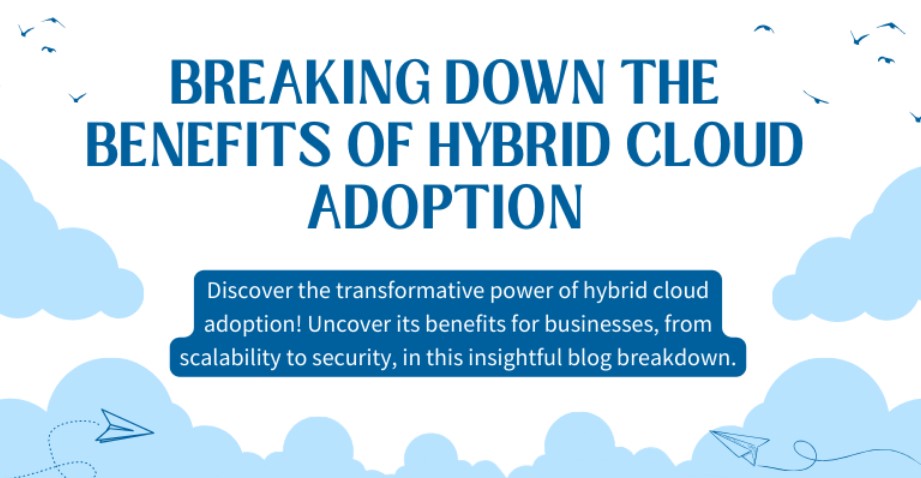
A hybrid cloud is basically a catch-all term that refers to the combination of compute and storage services from public cloud vendors and private, on-premises hardware. This could be as easy as running storage for files from your personal server and email from a hosted platform such as Microsoft O365. According to Jim Gladden, this software may run 75% of its tasks in a regular, static manner. But the other 25% may vary based on the time of day or season. In this article, we will clarify how a hybrid cloud can benefit all types of businesses.
1. Greater Flexibility
When you leverage a hybrid cloud solution, like those provided by Jim Gladden, you gain unparalleled flexibility. Tailor your workload placement for optimal performance, utilizing dedicated servers for resource-intensive tasks. Moreover, adapt your billing plan to align with budget constraints or regulatory requirements. Embrace swift deployment capabilities, crucial for meeting deadlines or responding to dynamic situations with agility.
2. More Control
With a hybrid cloud, your company can decide who gets to control what. You can give certain people root access, which means they have full control over certain parts of the system. And you can set up the network in a way that makes sense for your business. Unlike using just the cloud, a hybrid setup lets you decide if you want to share resources with other users or keep things separate. You can even ask for special hardware if your applications need it.
3. Improved Security
Keeping things secure is a big concern for businesses. But sometimes, using the cloud can make security harder. With a hybrid setup, you can choose to use dedicated servers and network devices. This helps keep your data safe because it’s not mixed in with other people’s data. You can also set up private networks to let your servers talk to each other securely. And there are lots of tools out there to help you keep an eye on things and stop attacks before they happen.
4. Compliance Options
Some companies need to follow certain rules about where they keep their data. They might not feel comfortable storing important information in the cloud where other people can access it. A hybrid cloud lets you mix and match cloud services with dedicated hardware. This way, you can follow the rules and keep your data safe. And when your data is secure, it’s easier to show that you’re following all the right regulations.
5. Peace of Mind
Jim Gladden believes that dealing with lots of different suppliers can be stressful. They all have different ways of doing things, which can make it hard to keep everything running smoothly. But if you choose one provider for all your hybrid cloud needs, things get easier. You have one team to talk to, and they can help you with everything. It’s like having one person who’s responsible for making sure everything works the way it should.
6. Utility Billing
Not every job can be done in the cloud. Some tasks need the power and security of dedicated hardware. But you still want the flexibility of cloud services for other things. With a hybrid cloud, you can have both. You can own some of the equipment and rent the rest as you need it. That way, you only pay for what you use, whether it’s a little or a lot.
7. Technical Predictability
When you’re launching something important, you want to know it’s going to work the way you expect. Sometimes, using just the cloud can be a bit unpredictable. But with a hybrid setup, you can use dedicated servers for the things that really matter. That means you can fine-tune everything to make sure it performs just right. And if you need extra help, you can still use the cloud for backup.
8. Operating System Choice
Different jobs need different operating systems. And if you’re selling services to other people, they might have their own preferences. Most cloud providers offer a wide range of options, from which you can select the one that best meets your needs. And if you need something special, you can always ask for it.
9. Fueling Innovation
Being able to try out new ideas quickly is important for developers. With a hybrid cloud, they can spin up new servers whenever they need to. This lets them test things out without waiting for permission. And when they’re done, they can decide if they want to keep using the cloud or switch to something else.
10. A Technology Safe Harbor
Keeping track of all your technology can be hard. But with a hybrid setup, you can keep everything in one place. You can use dedicated servers for things that need extra security and performance. And you can use the cloud for everything else. This makes it easier to manage, and it gives you more control over who can access your data.
Closing Remarks
To sum up, going hybrid with cloud solutions has loads of perks. You get more control, flexibility, and security, plus you can save some cash along the way. Jim Gladden, Edmonton came to the conclusion that it is a game-changer for businesses. Let’s not miss out on this opportunity! It’s time to dive into the hybrid cloud world and give our organizations the edge they need to stay ahead. By embracing this technology, we’re not just keeping up; we’re setting the pace for success. Let’s take the leap and watch our businesses thrive in this ever-evolving landscape.







